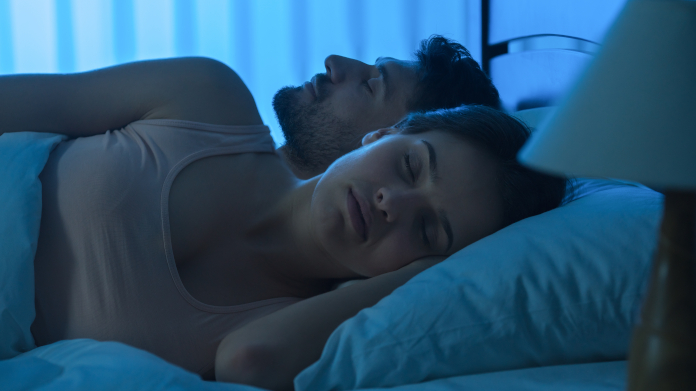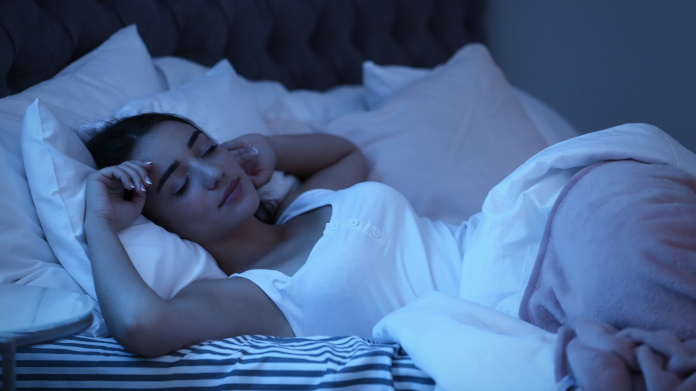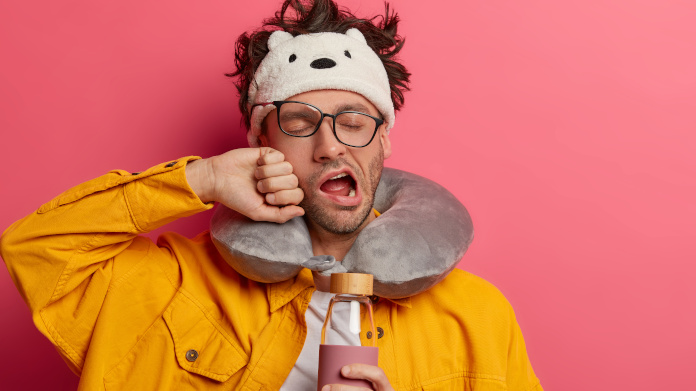Can you take melatonin after drinking alcohol?
Is it safe to take melatonin after an evening drinking alcohol? Quick update on the interactions between melatonin and alcohol.

Recap on melatonin, the famous ‘sleep hormone’
Produced naturally by the pineal gland (a small gland in the brain) as daylight fades, melatonin is a neurotransmitter which promotes drowsiness. That’s why it’s often referred to as the sleep hormone.
But melatonin also indirectly controls the time we wake up. This is because the body’s concentration of melatonin gradually diminishes during the night, as that of cortisol increases. It’s at the point that these two concentration curves cross that we wake up. Scientists thus refer to melatonin as have a ‘chronobiotic’ effect, in other words, it plays a role in synchronising our body clock with circadian rhythms.
Melatonin supplements are thus often used by those suffering from sleep problems. These supplements reduce the time it takes to fall asleep as well as the subjective effects of travelling through different time zones (jet lag) (1-3).
Alcohol and melatonin: okay … but best avoided
Though drinking a little alcohol when on a course of melatonin (or taking the odd melatonin tablet after drinking alcohol) will not produce any dramatic effects, mixing alcohol and melatonin is nonetheless not to be recommended.
Alcohol can actually raise or lower melatonin’s effects. Combining them can cause side-effects such as dizziness, bad dreams, daytime drowsiness, breathing difficulties, increased anxiety … In short, it’s best to take melatonin when you have no alcohol in your system or when you haven’t drunk alcohol in the previous few hours (4-6).
If you suffer from sleep problems more generally, stay away from alcohol and psychoactive substances. Despite their potential sedative effects, they tend to impair sleep quality (7-8).
Other substances that may interact with melatonin
Other substances that potentially interact with melatonin include:
- anticoagulant drugs (additional melatonin can increase the risk of bleeding) ;
- anti-seizure medication (melatonin can alter their efficacy) ;
- immune-suppressants (melatonin can interfere with these drugs)
- and other sleep aids (you can have too much of a good thing).
So you should avoid supplementing with melatonin if you are taking any of these drugs or aids.
Melatonin: dose, duration and contraindications
In terms of dose, a maximum of 2mg/day is generally recommended. You don’t necessarily need to take a tablet every single day.
As for how long to carry on supplementing, it’s advisable - even though there appear to be few long-term side-effects from taking melatonin - to follow a course for several weeks, stopping after two months, for example (9-10), so that you can evaluate the quality of your sleep. Leave a gap of a few weeks between one course and the next. Occasional use as and when necessary may also be beneficial.
Is melatonin suitable for everyone? In several countries, health authorities have taken the view that melatonin supplementation is contraindicated for the following groups of people:
- pregnant women and nursing mothers, to avoid any risk to the baby’s physical and cognitive development;
- anyone suffering from inflammatory or auto-immune diseases, epilepsy, mood disorders …
In addition, melatonin supplementation should be discontinued if you experience any of these side-effects:
- drowsiness;
- headaches;
- dizziness;
- nausea;
- irritability and personality disorders;
- confusion ;
- enuresis (bedwetting).
Which melatonin supplement should you take?
Melatonin in tablet form
Melatonin is usually available in 1mg tablets (that’s the case for Melatonin 1 mg). You can take two tablets a day, reducing the dose to one a day if you find it hard to wake up.
Melatonin in spray form
Melatonin also comes in the form of a water and glycerin sublingual spray. Taking it in this form ensures rapid, effective absorption across oral mucous membranes (try, for example, Melatonin Spray).
Melatonin combined with relaxing plant extracts
Many people also turn to synergistic formulations which combine melatonin with extracts of relaxing plants such as valerian, hawthorn, hop, passiflora and Californian poppy. Together, and working synergistically with melatonin, these plant extracts can help improve quality of life (try, for example, Advanced Sleep Formula).
References
- RALPH, C. L. Melatonin production by extra-pineal tissues. In : Melatonin: Current status and perspectives. Pergamon, 1981. p. 35-46.
- REITER, Russel J. The melatonin rhythm: both a clock and a calendar. Experientia, 1993, vol. 49, no 8, p. 654-664.
- RAO, Marie L., MÜLLER‐OERLINGHAUSEN, B., MACKERT, A., et al.Blood serotonin, serum melatonin and light therapy in healthy subjects and in patients with nonseasonal depression. Acta Psychiatrica Scandinavica, 1992, vol. 86, no 2, p. 127-132.
- https://landmarkrecovery.com/is-it-dangerous-to-mix-melatonin-and-alcohol/..
- https://www.healthcentral.com/article/can-i-take-melatonin-with-alcohol
- https://drruscio.com/melatonin-and-alcohol/
- KURHALUK, Natalia. Alcohol and melatonin. Chronobiology International, 2021, vol. 38, no 6, p. 785-800.
- KURHALUK, Natalia et TKACHENKO, Halyna. Melatonin and alcohol-related disorders. Chronobiology international, 2020, vol. 37, no 6, p. 781-803.
- https://www.nhs.uk/medicines/melatonin/#:~:text=Melatonin%20takes%20around%201%20to,for%20up%20to%2013%20weeks.
- https://www.hopkinsmedicine.org/health/wellness-and-prevention/melatonin-for-sleep-does-it-work
Keywords
1 Days
Quick shipping
Quick shipping; good price. No issues!
Mary McCarty
3 Days
Thr product is very good and is helping…
Thr product is very good and is helping me on my health. Then is always on time
LUGO Luz
5 Days
Buying was fine
Buying was fine. I had problems with the website not recognizing my login info, and had to call to get it fixed. Other than that, everything was good.
David S. Clark
5 Days
Your super maca and super ginseng are…phenomenal
Your super maca and super ginseng are phenomenal supplements that compliment each other when taking them together. Fantastic feeling of well-being and lots of mid day energy without the crash.
Keith Mason
8 Days
I have had amazing results with every…
I have had amazing results with every supplement I've purchased. I am extremely satisfied with this company
kirstin Torres
8 Days
Fine products
Fine products . They are on the leading edge of online supplements. The only issue -so far-is they sometime run out of subscription items.
Jason Argos
11 Days
The ordering process is very user…
The ordering process is very user friendly and the products always come in a timely manner.
CARTER Rhonda
12 Days
The price for Dr
The price for Dr. Pero's AC-11 is reasonable and in line with his views. (my former colleague). Keep it pure.
CAMPBELL Clayton
15 Days
Right on every time.
Right on every time.
Arthur Nicholas
18 Days
They are cheaper than everyone else and…
They are cheaper than everyone else and the shipping was fast. Great company.
Patricia Adams
24 Days
Availability of quality health…
Availability of quality health supplements and it's wide variety is impressive. Ordering is seamless and shipping even during the holidays is well streamlined.
Mohamad Hussein
39 Days
A Product worth waiting for when not…
A Product worth waiting for when not available and then arriving as a surprise!
DOMINIC
40 Days
On time shipping
On time shipping
GEORGE Verne
42 Days
Ordering was easy and the product was…
Ordering was easy and the product was delivered with no problems. Appreciated that I was notified when it would arrive. Thanks!
MascarC
47 Days
Great customer service - responsive …
I ordered from them and my item was unavailable for sometime. I was super happy when they reactivated my order and shipped my item which arrived very quickly. Great customer service.
Ruth Rueter



